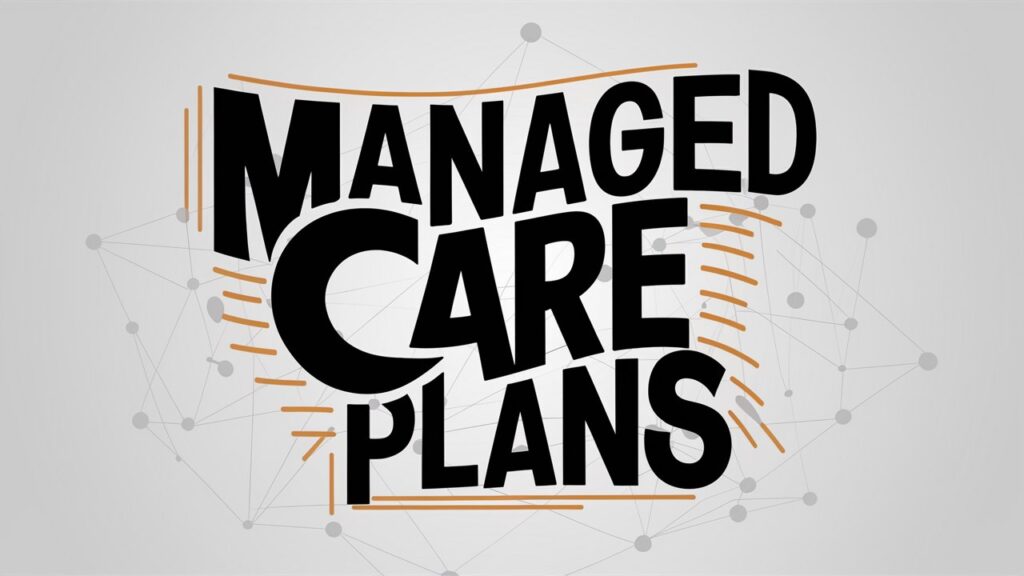Managed Care Plans revolutionize healthcare by integrating cost-effective strategies and coordinated services. From Health Maintenance Organizations (HMOs) to Preferred Provider Organizations (PPOs), these plans optimize care delivery, enhance patient outcomes, and manage healthcare costs efficiently.
Introduction
In the ever-evolving landscape of healthcare, Managed Care Plans have emerged as a vital mechanism for delivering efficient and cost-effective medical services. These plans are designed to optimize healthcare delivery, manage costs, and improve health outcomes through strategic coordination and utilization management. This guide delves into the intricacies of Managed Care Plans, exploring their types, benefits, challenges, and the impact they have on both patients and healthcare providers.
Understanding Managed Care Plans
Managed Care Plans encompass various healthcare models that prioritize preventive care, cost management, and coordinated services. They play a crucial role in shaping how healthcare is accessed and delivered across different populations. Here’s an overview of the primary types of Managed Care Plans.
Types of Managed Care Plans
- Health Maintenance Organizations (HMOs)
HMOs are known for their emphasis on preventive care and cost containment. Members typically choose a primary care physician (PCP) who coordinates their healthcare needs and provides referrals to specialists within the network. This model aims to streamline care delivery while reducing unnecessary costs.
- Preferred Provider Organizations (PPOs)
PPOs offer more flexibility compared to HMOs by allowing members to visit specialists without requiring referrals from a PCP. While staying within the network ensures lower out-of-pocket costs, members can also seek care outside the network, albeit at higher costs. This flexibility appeals to individuals who prioritize choice and access to a broader range of providers.

- Exclusive Provider Organizations (EPOs)
EPOs combine aspects of HMOs and PPOs by limiting coverage to network providers, except in emergencies. They often feature lower premiums compared to PPOs but require members to adhere strictly to network guidelines for coverage, promoting cost-effective care management.
- Point of Service Plans (POS)
POS plans blend features of HMOs and PPOs by requiring members to select a primary care physician and obtain referrals for specialist care within the network. Out-of-network services are covered but typically at a higher cost, encouraging utilization of in-network providers while providing some flexibility in care choices.
Benefits of Managed Care Plans
Offer several advantages that contribute to their popularity among consumers and healthcare providers alike,
- Cost Management
By negotiating rates with providers and emphasizing preventive care, Managed Care Plans help control healthcare costs, making services more affordable and predictable for members.
- Coordinated Care
These plans promote collaboration among healthcare providers, ensuring that patients receive integrated care that addresses their holistic health needs. This approach can lead to improved health outcomes and patient satisfaction.
- Comprehensive Coverage Networks
Members benefit from access to extensive networks of healthcare providers, reducing the financial burden of medical expenses, particularly for routine and preventive services.
Challenges and Considerations
Despite their benefits, Managed Care Plans also present challenges and considerations that impact both consumers and healthcare providers,
- Network Limitations
Some plans restrict members to network providers, limiting choice and access to specialized care or preferred healthcare professionals who may be out-of-network.

- Utilization Management
Requirements such as referrals and pre-authorization for certain services can introduce administrative complexities and potential delays in care delivery, impacting patient satisfaction and provider workflows.
- Balancing Cost and Quality
There is a continual challenge in managing costs while maintaining high-quality care standards. Striking the right balance requires ongoing evaluation and adaptation of care delivery models.
Impact on Patients and Providers
Managed Care Plans influence both patient experiences and provider practices in significant ways,
- Patient Experience
Members appreciate the financial predictability and coordinated care offered. However, navigating network restrictions and coverage requirements can sometimes pose challenges, particularly when seeking specialized care or out-of-network services.

- Provider Practices
Healthcare providers within Managed Care Networks must adhere to plan guidelines and utilization management protocols. This can influence how they deliver and coordinate care to optimize outcomes while managing costs effectively.
Conclusion
In conclusion, Managed Care Plans play a pivotal role in modern healthcare delivery by promoting efficiency, affordability, and quality through structured care models. By integrating preventive measures, leveraging provider networks, and implementing cost-containment strategies, these plans aim to meet the evolving healthcare needs of diverse populations. Understanding Managed Care Plans is essential for navigating the complexities of healthcare financing and delivery, ensuring that individuals and providers alike can make informed decisions that prioritize health and wellness.
For more details please visit our home page: Click Here

